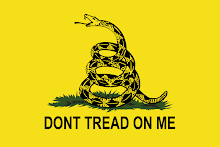The term Lesbian originally referred to the people who lived on the Greek island Lesbos. Indeed, they were an important player in the Peloponnesian War. This knowledge, however, does not stop me from snickering every time the "Lesbian ambassador" was mentioned in class. (To be fair, I also snicker when my law professors say "but for" or "duty.")
Now, the AP is reporting that three Lesbians (of the island) are suing a Lesbian (homosexual women) group.
"My sister can't say she is a Lesbian," said Dimitris Lambrou. "Our geographical designation has been usurped by certain ladies who have no connection whatsoever with Lesbos," he said.First, the line "My sister can't say she is a Lesbian":This must bring a chuckle. What more is there to say for that phrase? Second, I love the euphemism, "certain ladies." How politically correct and respectful!
Lambrou said the word lesbian has only been linked with gay women in the past few decades. "But we have been Lesbians for thousands of years," said Lambrou[.]Lambrou has a point here. The homosexual community has usurped many words for their own identification. Other words have been thrust upon them. Either way, the modern speaker has a minefield to navigate lest he somehow refer to homosexuality. "Gay" once simply meant merry or happy. Lesbian referred to a person from the tiny Greek island. "Queer" simply meant odd or unusual. "Faggot" is really a term for kindling. Indeed, anyone who reads Foxe's Book of Martyrs will get quite a surprise if they did not know the true definition of faggot.
It will be interesting to see how this case turns out. Greece has long been known for its openness to "alternative" sexual choices. Thus, the courts may be reluctant to condemn in anyway the homosexual community. Yet, the Greek people are very proud of the heritage and land too. I would not want to grow up on Lesbos and have my sister thus teased for being a "Lesbian." Which side will win the tug of war?

